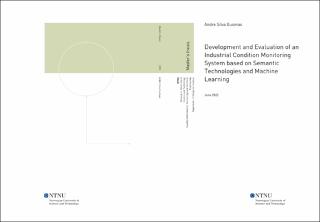| dc.contributor.advisor | Soylu, Ahmet | |
| dc.contributor.advisor | Kharlamov, Evgeny | |
| dc.contributor.advisor | Zhou, Baifan | |
| dc.contributor.author | Gusmao, Andre Silva | |
| dc.date.accessioned | 2022-07-07T17:20:58Z | |
| dc.date.available | 2022-07-07T17:20:58Z | |
| dc.date.issued | 2022 | |
| dc.identifier | no.ntnu:inspera:106263327:49850946 | |
| dc.identifier.uri | https://hdl.handle.net/11250/3003638 | |
| dc.description.abstract | Ensuring the quality of industrial processes product and keeping the cost involved low is highly valuable and desirable among various companies. The quality of a product can be affected by different factors in the production line that often require adjustments and maintenance for the best result and performance. The process of quality monitoring often indicates the quality of the machinery and products to provide information that can be used to seek the optimal product quality and cost.
Industry 4.0 environments tend to produce big amounts of data from their processes. The data produced during these processes can be used in ML techniques to create predictive models that can be used to stipulate the quality and cost involved in the product of the production line. The prediction can be used as a quality monitoring tool for the business decision making process. Applying ML techniques in different and voluminous amounts of data to build predictive models for industrial quality monitoring is costly and presents challenges.
This paper presents a technological research for a system that aims to provide a ML-based condition monitoring solution that uses semantic technologies to address the challenges involved in the process. It presents an extensive problem analysis, system development and evaluation process of our solution. | |
| dc.description.abstract | Ensuring the quality of industrial processes product and keeping the cost involved low is highly valuable and desirable among various companies. The quality of a product can be affected by different factors in the production line that often require adjustments and maintenance for the best result and performance. The process of quality monitoring often indicates the quality of the machinery and products to provide information that can be used to seek the optimal product quality and cost.
Industry 4.0 environments tend to produce big amounts of data from their processes. The data produced during these processes can be used in ML techniques to create predictive models that can be used to stipulate the quality and cost involved in the product of the production line. The prediction can be used as a quality monitoring tool for the business decision making process. Applying ML techniques in different and voluminous amounts of data to build predictive models for industrial quality monitoring is costly and presents challenges.
This paper presents a technological research for a system that aims to provide a ML-based condition monitoring solution that uses semantic technologies to address the challenges involved in the process. It presents an extensive problem analysis, system development and evaluation process of our solution. | |
| dc.language | eng | |
| dc.publisher | NTNU | |
| dc.title | Development and Evaluation of an Industrial Condition Monitoring System based on Semantic Technologies and Machine Learning | |
| dc.type | Master thesis | |
